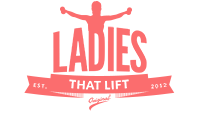Most of the women I speak with daily want to lose weight. I like to divide them into categories in terms of their needs.
- There is the woman who doesn’t exercise, doesn’t really eat well. She needs to change and that’s why we are speaking. Physiologically this is an easy fix. Fix the diet and fix the exercise. Mentally, this is a tough one as building better habits from the ground up is hard.
- There is the woman who is likely an athlete. Keen on her training and her nutrition. She just needs to be pointed in the right direction and there you go.
- There is the women who has hit a plateau. She’s convinced she is doing everything, tried everything and failing to see results. This could be the athletic type, self sabotaging by knowing too much and trying to implement everything all at once. Or it could be the lady who has seen some results and now hit a plateau and not sure how to break through.This blog is for person number 3 today (although, person 1 and 2, don’t worry, I will write something for you soon)…
QUESTION 1: What have I been doing?
It seems like a silly question. Surely you know what you have been doing for the past few weeks or months? But you would be surprised by how many people I speak to who know they have been dieting (by their definition) and exercising (by their definition) for weeks, months or even years, but they aren’t tracking their progress. They don’t keep a food diary or write down their workouts.
This can mean a few things.
We can often forget that actually half the month we missed the gym because we had to work late and actually, when we think about it, we only worked out on average twice a week the past month, not the 4 times we thought. Yes, you’ve been eating low carb, but if you add in the wine, the slice of cake and the packet of dates you ate on the weekend, perhaps maybe you are not doing what you actually think you are doing.
Tip: Keep a training log. Write down your workouts, the weights you used, the reps and sets completed and the rest breaks. This will allow you to perform better than you did each week. It will also allow you to see how many times you actually train each week. Keep a food diary. Not forever, but for a little while. It will allow you to see what you REALLY are eating and also you can start to link your food intake to your mood, cravings and physical performance.
QUESTION 2: Have I been consistent?
Is the approach you have chosen consistent? Are you making it a commitment to hit a certain number of exercise sessions each week. Do you have a meal plan or macro plan that you stick to each week? I notice with many clients that the weekends are a struggle. They can be really dedicated Monday to Friday and then from brunch on Saturday it starts to become a slippery slope of a little bit extra here and there.
I am by no means pointing the finger of blame. I struggle with this myself. I’ve noticed that sometimes social events do put temptation in the way, but also there is a much more “relaxed” attitude that comes with the weekend when, even if there is healthy food in the fridge, there is an inclination to just make choices which aren’t as good.
Tip: I find having a structure helps. A structured training plan which is progressive so I know that I have to complete all the workouts within the week so I am ready to move up to the next progression the following week. Identify your weekend dietary weak points and then write down solutions. Maybe it’s a case of having some healthy finger food ready to go in the fridge, dining out with friends at places that serve your type of food and looking at creative ways to cut back on alcohol.
QUESTION 3: Am I doing too much?
For every person who isn’t being consistent and doesn’t know what they are doing there is a person who knows too much and does too much. You might hear something like this:
“I am doing low carb paleo and I’m doing 5 CrossFit sessions a week and I’ve just entered a triathlon so I have just started training for that. Sometimes I throw in intermittent fasting to give me a boost!”
Yes, I am sure you are nodding your head because you are either this person or you probably know someone who is like this.
In the game of fat loss less can be more. Too much exercise, calorie and carb restriction is not a successful or sustainable weight loss strategy.
I like to think of it as a tool box. In your tool box you have many tools of different shapes and sizes, for example:
Exercise: HIT tool, resistance tool, cardio tool
Nutrition: low carb tool, carb cycling tool, fasting tool, low fat tool, refeed tool, timing tool
If you want to hang a picture you use a hammer and a nail. You don’t get all the tools out of your tool box at once. Then you just end up with a mess. In this case, a metabolic mess, where there is so much going on your body doesn’t know what to do. So it does nothing. It just holds on to body fat, maybe adds a bit more (especially around the stomach), it also might mess with your hormones, your mood, your energy and your sleep. You get the idea…
Tip: Keep it simple. Four training sessions a week with decent calorie intake and good sleep is a great place to start. Make little changes and track progress.
QUESTION 4: How long have I been in a calorie deficit?
A sensible calorie deficit (about 10%-15%) may be necessary to bring about fat loss results. But extreme calorie deficits in the long term can slow down thyroid function and reduce metabolic rate. I speak to many women each week who are eating 1500 calories and below, some even as low as 800-1000 calories per day. In addition to this they may be doing at least 4 exercise sessions per week.
In addition to slowing metabolic rate, extreme calorie and carbohydrate restriction also increases the likelihood of binge eating behaviour and disordered eating. It is not sustainable and even if you do reach your weight loss goal, there is no strategy to rebuild metabolism back up to a healthy level so that you are no longer stuck eating 800 calories for the rest of your life.
Tip: A really nice quote I read in a blog once was that if you can’t get any leaner, shift your focus to building muscle. I thought it was excellent. To build muscle we need fuel, if we fuel our body right and it builds muscle, it means we increase our metabolism and enhance body shape. Not only that, but we shift our focus away from calorie control and onto our performance (look what my cool body can do!)
QUESTION 5: How long have I been eating low carb?
Low carbohydrate diets have become increasingly popular over the last 10 years or so. But guess what, not everyone needs to be on a low carb diet to lose weight.
I truly believe that carbohydrate intake should be personalised. There will be some people who (at least in the short term) would benefit from eating 50g to 100g of carbohydrate a day. Most of my clients start between 100g and 150g and still lose weight. You can read this blog about how it works.
Just like calories, if we drop carbohydrate intake too low for too long, this can have a negative impact on thyroid hormone and ultimately suppress metabolic rate.
Additionally, as a compensation for a low carb diet I often see over consumption of fatty foods; butter, cream, whole jars of nut butter, dark chocolate, coconut products and fatty meats like eggs, bacon and oily fish. All these food, although healthy in small amounts, soon sky rocket calories which means that the calorie deficit required for weight loss is longer.
Eating low carb can also be a trigger for carbohydrate binges. I used to eat low carb and then when I exercised I’d get really hungry and then eat a chocolate bar or a cup cake because my sugar cravings were insane. I thought I could get away with it because “I ate low carb” but really I was just kidding myself.
Tip: Find the right balance of macronutrients (proteins, fats and carbohydrates) for your body and exercise levels.
QUESTIION 6: When was the last time I changed my training?
This is a massive one for many. Bootcamps, studio classes and steady state cardio are very often not progressive. You move your body and get your sweat on for 60 minutes and then you go home and you can tick off your 1 hour of exercise for that day. Then the next day you go and do the same thing, again and again and again.
This definitely works in the short term. If you weren’t exercising and now you are doing more, you are burning calories and you are definitely getting the cardiovascular benefits of exercise. It gets easier doesn’t it? As it gets easier, you are essentially not working as hard anymore and the body soon adapts.
At this point it’s time to shake things up and do something new. Maybe try another class or a different approach. But very few people do.
This is one of the reasons why I love weight lifting. There are many variables we can manipulate to keep the body guessing. We have a variety of different exercises, we have the number of reps we do, the number of sets we do, how heavy we go and the rest breaks between each one. There are so many variables that we can play with to keep the body adapting.
Tip: I follow a structured and progressive resistance program 3 to 4 days a week and I change this program every 4 to 6 weeks. Then I add in other skills like yoga (also progressive), swimming, kayaking and running for fun and time outdoors.
QUESTION 7: Am I being honest with myself?
So now you know a little about what could be holding you back. Have you been honest with yourself?
Have you really tried everything? Or are you stuck in a rut or stuck in your ways of doing something. Maybe even thinking your know your body best, you should be able to do this yourself, but actually you just stay in the same place too scared to try something new.
One of the biggest things I aim to get across to my clients is often its not finding the right diet and the exercise plan that holds us back. It’s us. Our mindset. Our ability to take that leap, get uncomfortable and take action to do something different.
If what you are doing isn’t working, change it. Make as many mistakes as possible because you will learn from them.
It can be tough if you have been doing such a good job at controlling your calories (despite no results) and you get told to eat more. It can also be hard when you’ve given up so much time to get your training done and someone says, I want you to train less or train differently. Its scary.
On the flip side, it can be hard being told we need to do more and eat better when we really believe all the stories in our head about why we can’t, won’t or don’t deserve to.
Changing your health for the better is an opportunity. It is not something you do to punish yourself. It is a gift that you give yourself. How amazing is that!?
So sit down, be totally honest. Take action. Make a change.







